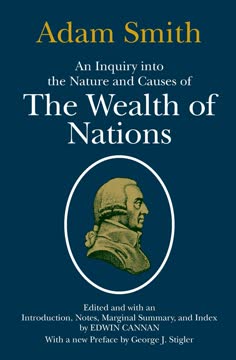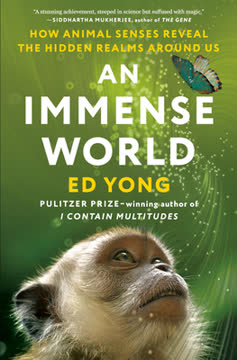つの重要なポイント
1. カミュの人生と作品は、無意味さと反抗の闘争を体現している
「無意味さは人間にも世界にも依存している。」
無意味さと反抗。 カミュの哲学は、人生の本質的な無意味さと人間の意味を求める持続的な努力との間の緊張に中心を置いている。この逆説は、彼の無意味さの概念の基盤を形成し、さまざまな作品で探求されている。
倫理的な応答。 虚無主義に屈するのではなく、カミュは無意味さに対する反抗を提唱する。この反抗は、無関心な宇宙に直面しても人間の尊厳と正義へのコミットメントとして現れる。
- これらのテーマを探求した主要な作品:
- 『シジフォスの神話』(哲学的エッセイ)
- 『異邦人』(小説)
- 『反抗的人間』(哲学的エッセイ)
- 『ペスト』(小説)
2. 『異邦人』は個人性と社会的規範の緊張を探求する
「彼は自分がしたことではなく、自分が何であるかで判断される。」
ミルソーの疎外。 小説の主人公ミルソーは、社会の期待に従わない「無意味な人間」の概念を体現している。彼の従来の道徳や感情的規範に対する無関心は、社会からの非難を招く。
正義の批判。 ミルソーの裁判を通じて、カミュは社会的判断の恣意的な性質と、受け入れられた規範に従わない者を罰する傾向を暴露する。この批判は、個別のケースを超えて正義や人権に関する広範な問題にまで及ぶ。
- 『異邦人』で探求されるテーマ:
- 疎外と孤立
- 人間存在の無意味さ
- 個人と社会的価値の対立
- 言語とコミュニケーションの限界
3. 『ペスト』は存在的危機に直面した人間の連帯を寓話化する
「病人がいて、彼らは治療を必要としている。」
危機への集団的応答。 アルジェリアのオラン市を舞台にしたペストの発生を背景に、小説は個人やコミュニティが存在的脅威にどのように反応するかを考察する。カミュは、苦しみに直面したときの人間の連帯と集団行動の重要性を強調する。
倫理的関与。 リュー医師やタルーのようなキャラクターを通じて、カミュは無意味さに立ち向かうさまざまなアプローチを探求する。彼らの他者を助けるというコミットメントは、努力の無意味さにもかかわらず、カミュの無意味さに対する反抗の概念を体現している。
- 『ペスト』の主要なテーマ:
- 悪と苦しみの本質
- 社会における個人の役割
- 人間の行動の限界と可能性
- 明晰な観察と誠実なコミュニケーションの重要性
4. カミュのアルジェリアにおけるジャーナリズムは、彼の倫理的および政治的見解を形成した
「私は常に死刑に恐怖を抱き、少なくとも個人としては、それに参加できないと判断している。」
直接的な観察。 アルジェリアでのジャーナリストとしての経験、特にカビリアの貧困に関する報道は、社会的不正義や植民地的抑圧に対する彼の理解に深く影響を与えた。これらの経験は、彼の人権と尊厳への生涯にわたるコミットメントを形成した。
倫理的ジャーナリズム。 アルジェ・レプブリカンやコンバットでの仕事を通じて、カミュは明確な観察、誠実な報道、道徳的関与を強調するジャーナリズムのスタイルを発展させた。彼は、ジャーナリズムを不正義の証人となり、変革を提唱する手段と見なしていた。
- カミュのジャーナリズム倫理の主要な側面:
- 事実の正確性と明確な言語の強調
- 社会的および政治的な不正義を暴露するコミットメント
- 変革をもたらすジャーナリズムの力への信念
- 政治的便宜のために倫理的原則を妥協しない姿勢
5. 『反抗的人間』は革命的イデオロギーを批判し、穏健さを提唱する
「私は反抗する—だから私たちは存在する。」
革命の限界。 『反抗的人間』において、カミュは革命的思想と行動の歴史を考察し、抽象的な理想を追求するために暴力を正当化するイデオロギーを批判する。彼は、そのような革命が新たな形の専制と抑圧をもたらすことが多いと主張する。
倫理的反抗。 カミュは、急進的な革命の代わりに、人間の限界を尊重し、対立する価値を調和させる反抗の形を提唱する。この「相対的」な反抗は、想像上の未来のために現在の命を犠牲にすることなく、人間の条件を改善することを目指す。
- 『反抗的人間』の主要なアイデア:
- 歴史的決定論とユートピア的思考の批判
- 穏健さと人間の限界への尊重の強調
- 競合する価値を調和させる「相対的」な反抗の提唱
- 政治的目的を達成する手段としての暴力の拒絶
6. カミュのアルジェリア戦争に対する立場は、彼の複雑なアイデンティティと倫理を反映している
「私は正義を信じているが、正義の前に母を守る。」
引き裂かれた忠誠心。 フランスとアルジェリアの文化に深く結びついたピエ・ノワール(アルジェリア生まれのフランス人入植者)として、カミュはアルジェリア独立戦争の際に困難な立場に置かれた。彼の両者の間を仲介しようとする試みは、最終的には成功しなかった。
倫理的ジレンマ。 戦争に対するカミュの立場は、正義と人権へのコミットメント、そしてアルジェリアへの個人的なつながりを反映している。「市民の休戦」を呼びかけ、最終的にこの問題について沈黙を守ったことは、彼の立場の複雑さと対立する忠誠心を調和させる能力の限界を示している。
- カミュのアルジェリア戦争に対する立場に影響を与えた要因:
- 彼のピエ・ノワールとしての背景と家族のつながり
- アルジェリアにおける不正義の観察とジャーナリズムの経験
- 人権と尊厳へのコミットメント
- escalating violence and polarization of the conflict
7. 沈黙はカミュの道徳的および政治的ジレンマに対する究極の応答となる
「もし私たちがそれに名前を付けることができたら、どんな沈黙が続くだろう!」
言語の限界。 カミュはキャリアを通じて、道徳的および存在的な真実を完全に表現するための言語の不十分さに苦しんできた。この苦闘は、彼の文学スタイルやキャラクターが沈黙に頻繁に直面することに反映されている。
倫理的沈黙。 後年のアルジェリア戦争に対する沈黙を守るというカミュの決定は、倫理的な立場として見ることができる。この沈黙は、対立する忠誠心を調和させる能力の限界を反映し、過激な言説を通じてさらなる暴力に寄与することを拒否する姿勢を示している。
- カミュの沈黙へのアプローチの側面:
- 言語と理性の限界の認識
- 文学的および哲学的手段としての沈黙の使用
- 言葉が害を及ぼす可能性があるときに話さない倫理的次元
- 沈黙と存在の無意味さとの関連
8. カミュの道徳家としての遺産は、彼の文学的および哲学的貢献を超えている
「道徳家であることは、不安定な生活を送ることであり、これは道徳家を知的な人から区別するものである。知的な人は、倫理や国家の問題に対する公的な苦悩が、通常は容易で自信に満ちた私的な良心を伴う。」
関与した倫理。 小説家、哲学者、ジャーナリストとしてのカミュの仕事は、世界との道徳的関与へのコミットメントによって統一されていた。彼は、彼の執筆と個人的な行動を通じて、彼の時代の倫理的課題を明らかにしようとした。
持続的な関連性。 無意味さ、反抗、人間理解の限界といったテーマの探求は、読者に共鳴し続けている。明晰な観察、誠実なコミュニケーション、倫理的関与の強調は、現代の道徳的および政治的課題に立ち向かうためのモデルを提供している。
- カミュの道徳的遺産の主要な側面:
- 哲学的アイデアと生きた経験の統合
- 無意味さに直面したときの人間の尊厳と正義へのコミットメント
- 穏健さと人間の限界への尊重の強調
- 現代の倫理的および政治的議論への持続的な関連性
最終更新日:
FAQ
What is "Albert Camus: Elements of a Life" by Robert Zaretsky about?
- Biographical and Intellectual Portrait: The book offers a concise, thematic exploration of Albert Camus’s life, focusing on key moments that shaped his thought and writing rather than providing a comprehensive biography.
- Key Events and Ideas: Zaretsky examines pivotal events—such as Camus’s reporting in Kabylia, his stance during the French Resistance, his quarrel with Sartre, and his silence during the Algerian War—to illuminate the evolution of Camus’s moral and philosophical ideas.
- Interplay of Life and Work: The book demonstrates how Camus’s personal experiences, ethical struggles, and historical context are deeply intertwined with his literary and philosophical output.
- Focus on Moral and Political Engagement: It highlights Camus’s ongoing wrestling with issues of justice, freedom, exile, silence, and the absurd, showing how these themes recur throughout his life and work.
Why should I read "Albert Camus: Elements of a Life" by Robert Zaretsky?
- Accessible Introduction to Camus: The book is ideal for readers seeking an approachable yet insightful entry point into Camus’s life and thought, without requiring prior expertise.
- Contextualizes Major Works: Zaretsky connects Camus’s major writings—like "The Stranger," "The Plague," and "The Rebel"—to the historical and personal events that inspired them.
- Explores Moral Complexity: The book delves into the ethical dilemmas Camus faced, making it valuable for readers interested in philosophy, politics, and the challenges of moral action.
- Engaging Narrative Style: Zaretsky’s essayistic approach weaves biography, literary analysis, and historical context into a compelling narrative.
What are the key takeaways from "Albert Camus: Elements of a Life"?
- Struggle with the Absurd: Camus’s concept of the absurd is central—life’s lack of inherent meaning requires individuals to create their own values and act with integrity.
- Moral Attention and Silence: The importance of attentiveness to others and the ethical significance of silence recur throughout Camus’s life and work.
- Tension Between Beauty and Suffering: Camus sought to remain faithful to both the beauty of the world and the suffering of the humiliated, refusing to choose one over the other.
- Limits of Justice and Revolt: The book highlights Camus’s insistence on the necessity of revolt against injustice, but also the dangers of ideological extremism and the need for limits.
How does Robert Zaretsky structure "Albert Camus: Elements of a Life"?
- Thematic Chapters: The book is organized around four key episodes in Camus’s life, each serving as a lens for exploring broader philosophical and ethical questions.
- Chronological and Analytical: While moving roughly chronologically, Zaretsky frequently moves back and forth in time to draw connections between events and ideas.
- Integration of Influences: Each chapter brings in thinkers who influenced Camus, such as Thucydides, Montaigne, Rousseau, and Simone Weil, to deepen the analysis.
- Epilogue and Reflection: The book concludes with an epilogue that reflects on Camus’s final years, his story "The Guest," and the enduring relevance of his silence.
What are the main concepts explored in "Albert Camus: Elements of a Life"?
- The Absurd: The confrontation between human longing for meaning and the universe’s indifference, leading to a call for personal responsibility and value creation.
- Exile and Silence: Camus’s sense of being an outsider—both in France and Algeria—and his use of silence as both a personal and political stance.
- Justice and Revolt: The ethical imperative to resist injustice, balanced by a wariness of revolutionary violence and ideological absolutism.
- Attention and Dialogue: The moral work of attending to others, and the importance of genuine dialogue over monologue or dogma.
How does "Albert Camus: Elements of a Life" address Camus’s relationship with Jean-Paul Sartre?
- Friendship and Quarrel: The book details the evolution from close friendship to public and philosophical rupture between Camus and Sartre, especially over communism and the legitimacy of violence.
- The Rebel Controversy: Zaretsky analyzes the fallout from Camus’s publication of "The Rebel," which Sartre’s circle harshly criticized, leading to a famous intellectual break.
- Tragic Dimensions: The conflict is framed in terms of Greek tragedy, with both men embodying different responses to the moral and political crises of their time.
- Lasting Impact: The quarrel is shown as emblematic of broader tensions in postwar French intellectual life, with Camus ultimately choosing the path of moral hesitation and limits.
In what ways does "Albert Camus: Elements of a Life" connect Camus’s personal history to his philosophical ideas?
- Childhood Poverty and Silence: Camus’s upbringing in poverty and a largely silent household in Algeria profoundly shaped his sensitivity to suffering and his appreciation for silence.
- Experience of Exile: His status as a pied noir (French Algerian) and his later exile in France informed his sense of alienation and his nuanced views on colonialism and identity.
- Journalistic Engagement: Camus’s early work as a journalist covering injustice in Algeria laid the groundwork for his lifelong commitment to bearing witness and speaking for the voiceless.
- Personal Loss and Absurdity: The early death of his father and his own struggles with illness contributed to his existential outlook and the development of the absurd.
How does Robert Zaretsky interpret Camus’s concept of silence in "Albert Camus: Elements of a Life"?
- Silence as Ethical Stance: Silence is not mere withdrawal but a form of moral attention, especially when words would only add to violence or misunderstanding.
- Political and Personal Dimensions: Camus’s silence during the Algerian War is explored as both a personal tragedy and a principled refusal to take sides in a conflict where he saw justice and suffering on both sides.
- Artistic and Existential Significance: Silence is linked to Camus’s artistic struggles, his sense of creative exhaustion, and his search for a language adequate to ethical complexity.
- Philosophical Parallels: Zaretsky draws connections between Camus’s silence and the ideas of Simone Weil and Ludwig Wittgenstein, emphasizing the limits of language in expressing ethical truths.
What role do other thinkers and writers play in "Albert Camus: Elements of a Life"?
- Influence of the Greeks: Ancient writers like Thucydides and Aeschylus are shown to have shaped Camus’s understanding of tragedy, history, and moderation.
- Engagement with Moderns: Figures such as Montaigne, Rousseau, Chamfort, and Simone Weil are discussed as intellectual interlocutors who helped Camus articulate his own positions.
- Dialogue, Not Background: Zaretsky emphasizes that these thinkers are not mere background but active participants in Camus’s intellectual journey, especially at moments of crisis.
- Comparative Perspective: The book also draws parallels between Camus and contemporaries like George Orwell, highlighting shared concerns about justice, totalitarianism, and the responsibilities of the writer.
How does "Albert Camus: Elements of a Life" address Camus’s views on justice, revolt, and political violence?
- Limits of Revolt: Camus champions revolt against injustice but insists it must be bounded by respect for human life and the recognition of limits.
- Critique of Absolutism: He is critical of both religious and ideological absolutism, warning that the pursuit of perfect justice can lead to new forms of oppression.
- Case Studies: The book examines Camus’s positions during the French Resistance, the postwar purges, and the Algerian War, showing his consistent emphasis on moderation and dialogue.
- Moral Imagination: Zaretsky highlights Camus’s belief in the necessity of moral imagination—empathy for others, even enemies—as a safeguard against the dehumanizing effects of political violence.
What are the best quotes from "Albert Camus: Elements of a Life" and what do they mean?
- “Yes, there is beauty and there are the humiliated. Whatever difficulties the enterprise may present, I would like never to be unfaithful either to one or the other.”
- This quote encapsulates Camus’s lifelong effort to balance appreciation for the world’s beauty with a commitment to justice for the oppressed.
- “The absurd depends as much on man as on the world.”
- Camus’s definition of the absurd highlights the human role in confronting meaninglessness and the responsibility to respond creatively and ethically.
- “We must not condemn others to death because we have been given the death sentence.”
- Reflecting Camus’s opposition to the death penalty, this quote underscores his belief in the sanctity of human life, even in the face of injustice.
- “If we could name it, what silence would follow!”
- This line points to the limits of language in expressing the deepest ethical and existential truths, suggesting that some realities can only be shown, not said.
How does "Albert Camus: Elements of a Life" remain relevant for readers today?
- Contemporary Moral Dilemmas: The book’s exploration of justice, dialogue, and the dangers of ideological extremism resonates with current political and ethical debates.
- Model of Intellectual Integrity: Camus’s willingness to question his own positions and to admit error offers a model for honest engagement in public life.
- Value of Attentiveness: The emphasis on attention to others and the refusal to dehumanize opponents
レビュー
ロバート・D・ザレツキーによる『アルベール・カミュ』は、読者から高い評価を受けており、平均評価は5点満点中4.12である。レビュアーたちは、本書がカミュの人生と哲学に対して簡潔でありながら洞察に満ちたアプローチを取っていることを評価している。多くの人々がカミュの作品への優れた入門書と見なし、彼の人生の重要な瞬間とそれが彼の思考に与えた影響を強調している。読者は、ザレツキーが伝記的な詳細と哲学的な概念を巧みに融合させている点を称賛し、本書をアクセスしやすく魅力的なものにしている。一部の読者はより深い内容を望んでいるが、全体としてカミュを理解するための貴重なリソースと考えられている。
Similar Books














